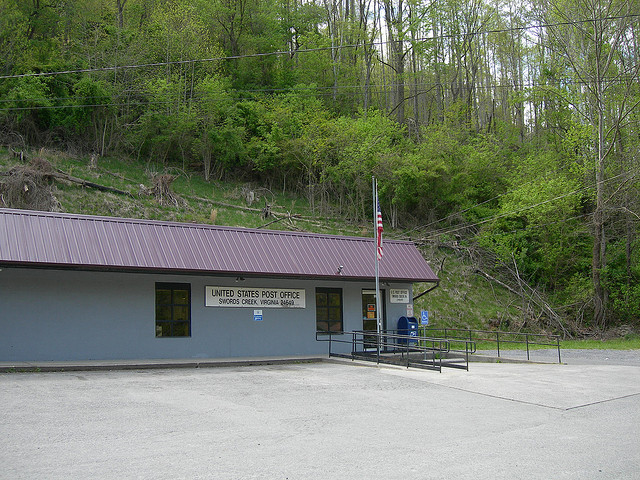September 17, 2014
Eight months ago, I posted about a January 10, 2014 Supreme Court of Virginia opinion interpreting ambiguous words of conveyance in a Southwest Virginia coal severance deed. In CNX Gas Company, LLC v. Rasnake, the Court decided that CNX had the right to continue to extract the Coal Bed Methane from a tract of land in Russell County. The Court interpreted language limiting words of conveyance in a 1918 deed so as not to include CBM. A land conveyance represents real estate decisionmaking in the face of the unknown future.
On September 12, 2014, the Supreme Court of Virginia issued another opinion relating to CNX’s extraction of CBM from Russell County coal fields. Swords Creek Land Partnership v. Dollie Belcher, et al., interprets words of conveyance and the difference between CBM and coal. This case caught my attention because it discusses the Rasnake case. It also so happens that in the past year, “Words of Conveyance” was the most common term entered by all of you into the search feature of this blog.
Like Rasnake, the Belcher case concerns an (1) 1887 conveyance of coal, (2) from a land in Russell County, (3) to Joseph Doran and W.A. Dick, (4) whose successors in interest leased the CBM extracting rights to CNX Gas. Despite the factual similarities, the outcome of the two cases is different, because each deed contains different granting language.
On February 7, 1887, Christopher & Amanda Richardson executed a severance deed conveying:
. . . all of the coal, in, upon or underlying a certain tract of land and the timber and privileges hereinafter specified as appurtenant to said tract of land [metes and bounds description follows] to enter on, over, upon, and through said tract of land for the purpose of digging, mining, or otherwise securing the coal and other things in and on said tract of land hereinbefore specified, and removing the same from off said land . . . .
Ms. Belcher and two others are the successors in interest to the Richardsons. Swords Creek entered into a lease in 1991, granting the CBM to CNX’s predecessor in interest. Swords Creek receives 12.5% royalties from CNX.
Belcher and the other surface owners brought suit claiming rights to the CBM. In September 2013, the Circuit Court of Russell County entered an order finding that Swords Creek only had rights to coal, not to the CBM. Nine years before, the Supreme Court of Virginia decided that the term “coal” as used in the 19th century unambiguously referred to the mineral coal. In Virginia deeds from the 1800’s, CMB is a separate mineral estate from coal.
In upholding the Circuit Court’s decision, the Court discussed the Rasnake case, in which the granting language was deemed ambiguous. In Belcher, the Court found the words of conveyance to unambiguously convey only coal and timber, not including CMB. The Court found Belcher, et al., entitled to all of the royalties from the CBM.
What do Rasnake and Belcher add to what we know about words of conveyance in Virginia? My previous post discussed some of the key technical rules for construction of deeds. Today’s post adds two considerations at a higher-level of analysis:
- Managing What You Don’t Know. When Messrs. Doran and Dick went around Russell County, acquiring coal severance deeds from landowners, they engaged in real estate decisionmaking in the face of an unknown future. They knew that coal and timber fueled the national economic engine. They didn’t know that one day CBM would later be big business. They can’t really be faulted for that. There is an aphorism attributed to Confucius: “What you know, you know, what you don’t know, you don’t know. This is true wisdom.” This Chinese sage’s advice could well apply to everyday strategic real estate decisionmaking. What Doran & Dick did know was that the wording of deeds has the power to spawn or avoid future legal conflict. Severing out certain natural resource extraction rights from the surface owners can maximize the use and value of a parcel. It also heightens the risk that the interests of the parties will fall out of alignment. Perhaps Confucius would advise us to be healthily aware of such risks. Sometimes efforts to simplify a transaction can reap dividends.
- Drafting or Litigating over Property Instruments. The words in a land instrument granting property are facts that Courts feel comfortable interpreting without deference to findings by a jury. Even the threshold question of whether the language in a deed is ambiguous is a legal one. The Supreme Court of Virginia took two of these similar cases and published opinions on them in a 8-month time frame. In title cases where no facts are in dispute, the appellate court will be less reluctant to disturb a decision of the trial court. The language of the instruments needs to make sense, to a general audience but especially a judge if necessary. The choice of language that agreed to in a deed requires careful consideration by a qualified real estate attorney. In a dispute between parties claiming adverse interests to the same real estate, a wise investor consults with an experienced title litigator.
case citation: Swords Creek Land P’ship v. Belcher, 762 S.E.2d 570 (Supr. Ct. Va. Sept. 12, 2014)
photo credit: jimmywayne via photopin cc


